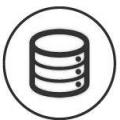Git is a powerful tool for keeping track of changes you make to the files in a project. You can use it to synchronize your work across computers, collaborate with others, and even deploy applications to the cloud. In this workshop, we'll learn the basics of understanding and using Git, including working with the popular "social coding" website, GitHub.
Sign up for our weekly newsletter!
This is an archive of our past training offerings. We are looking to include workshops on topics not yet covered here. Is there something not currently on the list? Send us a proposal.
The workshop will be an intensive two-day introduction to R using RStudio. Topics will include
This four-part, interactive workshop series is your complete introduction to programming Python for people with little or no previous programming experience. By the end of the series, you will be able to apply your knowledge of basic principles of programming and data manipulation to a real-world social science application.
The R for Data Science workshop series is a four-part course, designed to take novices in the R language for statistical computing and produce programmers who are competent in finding, displaying, analyzing, and publishing data in R.
Part 4: Functions and Packages
This four-part, interactive workshop series is your complete introduction to programming Python for people with little or no previous programming experience. By the end of the series, you will be able to apply your knowledge of basic principles of programming and data manipulation to a real-world social science application.
The R for Data Science workshop series is a four-part course, designed to take novices in the R language for statistical computing and produce programmers who are competent in finding, displaying, analyzing, and publishing data in R.
Part 3: Analyzing Data
This four-part, interactive workshop series is your complete introduction to programming Python for people with little or no previous programming experience. By the end of the series, you will be able to apply your knowledge of basic principles of programming and data manipulation to a real-world social science application.
The R for Data Science workshop series is a four-part course, designed to take novices in the R language for statistical computing and produce programmers who are competent in finding, displaying, analyzing, and publishing data in R.
Part 2: Clean and Tidy Data
This four-part, interactive workshop series is your complete introduction to programming Python for people with little or no previous programming experience. By the end of the series, you will be able to apply your knowledge of basic principles of programming and data manipulation to a real-world social science application.
The R for Data Science workshop series is a four-part course, designed to take novices in the R language for statistical computing and produce programmers who are competent in finding, displaying, analyzing, and publishing data in R.
Part 1: Basics of R
This intensive is a 3-day presentation of the D-Lab’s introductory Stata workshop series. The intensive will cover the following materials:
Part I: Introduction (Monday, August 15)
An intro to the basics that instructors often assume you know, but that you probably never had good instruction on! After this course, you should be able to more easily start learning to program (e.g., in R or python), follow instructions and documentation online (e.g., StackExchange), and communicate better with your collaborators who are programming. This interactive workshop will cover:
Come and experience the Digital Humanities at Berkeley Summer Institute through the Qualitative Data Analysis intensive offered by D-Lab instructor Zawadi Rucks Ahidiana. Stay for the daily lectures, food, and conversation.
Would YOU like to share your expertise?
This workshop will be open to anyone interested in having the guidance, feedback and structure for writing a grant. Potential participants could be faculty who have not written an NIH grant before, postdocs or adjunct faculty, advanced graduate students, or even early stage graduate students who want to put together a dissertation grant.
This workshop covers how to organize and analyze qualitative data in Dedoose. Both researchers new to qualitative methods and experienced qualitative researchers are encouraged to attend.
In this interactive workshop we will discuss how to develop and implement an analytical strategy for a qualitative research project. We will discuss how this analytical strategy changes across the research process from coding to writing up results. Researchers at any stage in the qualitative research process are welcome. No prior knowledge/experience is required.
This workshop covers how to organize and analyze qualitative data in MaxQDA. Both researchers new to qualitative methods and experienced qualitative researchers are encouraged to attend.
This workshop will cover how to extract data from the web using Python. We'll be covering both APIs and webscraping.
Topics Covered
In its most ambitious formulation, the digital humanities aims to articulate new research questions made available by modern computers and data methods. However, it is not immediately obvious how these fit into our existing research projects. How can we leverage programming and statistics toward the kinds of problems that are central to the humanities?







